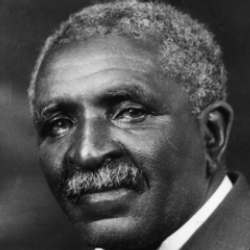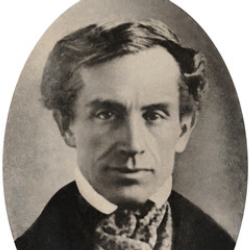David Quammen Quotations
-
Men Quotes
There was a very important superintendent of Yellowstone, a man who was involved in the founding of the National Park Service itself, Horace Albright. And he became superintendent, which is the boss of Yellowstone Park, in 1919 - from 1919 to 1929. Later, he was director of the park service itself. Albright embraced the idea that in order for the national parks - and Yellowstone in particular - to have support from the American people and from politicians, there needed to be wildlife as spectacle.
-
Taken Quotes
And so in 1975, the grizzly bear was put on, as I said - on the endangered species list as threatened. And new measures were taken, for instance, bear-proofing garbage, creating new regulations to - essentially to try and keep people and people's food away from the bears, let the bears adjust to eating the abundant wild food that's available in Yellowstone and allow them to be more wild, to be independent of humans as sources of foods for the good of both sides. And that has been quite successful.
-
Issues Quotes
But private lands development around the periphery of the parks - Grand Teton and Yellowstone - is a crucial issue because if those private lands are transformed from open pastures, meadow, forest land to suburbs, to little ranchettes, to shopping malls, to roads, to Starbucks - if those places are all settled for the benefit of humans, then the elk are not going to be able to migrate in and out of Yellowstone Park anymore. And if the elk can't migrate into the park, then that creates problems for the wolves, for the grizzlies, for a lot of other creatures.
-
-
Work Out Quotes
If you're Maasai Mara National Park in Kenya, if you're in Serengeti National Park in Tanzania, you don't get out of your vehicle and go walking around amid the lions and the leopards. You stay in your Land Rover. You stay in your safari van, and you look out the windows or you look out the pop top at these animals. I know by experience how badly that can work out if you violate those guidelines.
-
Attitude Quotes
Wallace's sales agent, back in London, heard mutterings from some naturalists that young Mr. Wallace ought to quit theorizing and stick to gathering facts. Besides expressing their condescension toward him in particular, that criticism also reflected a common attitude that fact-gathering, not theory, was the proper business of all naturalists.
-
-
-
Tears Quotes
You can hike into the Yellowstone backcountry. You can camp in the Yellowstone backcountry. You can take food into the Yellowstone backcountry, and you're surrounded by grizzly bears. And it's - it's a very, very thrilling, peculiar situation. Every sound that you hear in the night, you wonder is this a grizzly bear coming to tear into my tent?
-
-
-
-
-
-
Views Quotes
[Theory is] an explanation that has been confirmed to such a degree, by observation and experiment, that knowledgeable experts accept it as fact. That's what scientists mean when they talk about a theory: not a dreamy and unreliable speculation, but an explanatory statement that fits the evidence. They embrace such an explanation confidently but provisionally - taking it as their best available view of reality, at least unil some severely conflicting data or some better explanation might come along.
-
-
-
Life Is Hard Quotes
What do we measure when we measure time? The gloomy answer from Hawking, one of our most implacably cheerful scientists, is that we measure entropy. We measure changes and those changes are all for the worse. We measure increasing disorder. Life is hard, says science, and constancy is the greatest of miracles.
-
Spiritual Quotes
Evolution as described by Charles Darwin is an scientific theory, abundantly reconfirmed, explaining physical phenomena by physical causes. Intelligent Design is a faith-based initiative in rhetorical argument. Should we teach I.D. in America's public schools? Yes, let's do - not as science, but alongside other spiritual beliefs, such as Islam, Zoroastrianism and the Hindu Idea that Earth rests on Chukwa, the giant turtle.
-
Rivers Quotes
To drown a river beneath its own impounded water, by damming, is to kill what it was and to settle for something else. When the damming happens without good reason . . . then it's a tragedy of diminishment for the whole planet, a loss of one more wild thing, leaving Earth just a little flatter and tamer and simpler and uglier than before.
-
Hate Quotes
As I started to read nonfiction in the mid '70s, I discovered, holy cow, there was a lot of imaginative nonfiction. Not the kind where people use composite characters and invented quotes. I hate that kind of nonfiction. But imaginative in the sense that good writing and unexpected structure and vivid reporting could be combined with presenting facts.
-
-
-
-
-
-
-
-
Abundant Quotes
We're shaking loose viruses and dislodging them from their natural ecological limitations, places where they aren't very abundant and have competition, even within a single animal. We introduce them into a new, rich habitat called the human population, where they can flourish more abundantly and cause more trouble.
-
-
-
-
African Quotes
Most Americans know nothing about the African forest, and it seems to them a very scary, spooky dangerous place. I've spent a lot of time in the forests of central Africa. I know they're beautiful places that contain a lot of different kinds of creatures, including some that carry Ebola.
-
-
-
Becomes Quotes
There's a belief in some cultures that if a person experiences good fortune in financial terms and does not share the good fortune, when that person becomes ill with a mysterious fever and dies, people tend to say: 'Aha! It was because he didn't share. It was the spirits who brought him down.'
-
-
-
-































